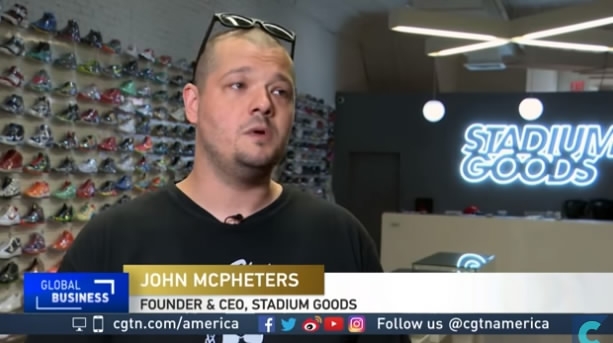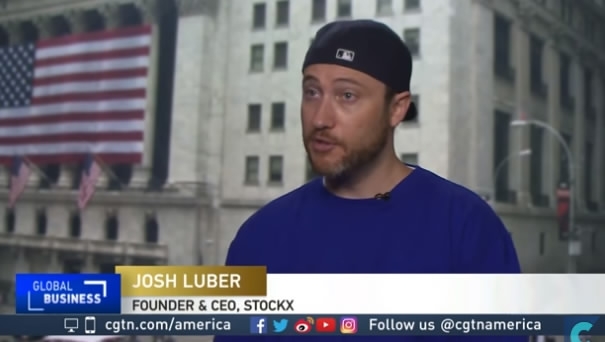
Business
10:30, 30-Aug-2017
StockX: The stock market of things
By CGTN’s John Terrett

We all know about the stock market, a platform to buy and sell company shares. StockX, a Detroit-based company is trying to take that model and introduce it to valuable items like handbags, watches and shoes.
The global market in desirable and collectible sneakers is booming.
“If you walk into a traditional retailer that’s selling sneakers, there might be 80 to 100 styles on the wall that you can choose from, pick one, and go home. But that’s not really where the demand is. People are looking for, whether it’s a special color of something that is limited, or sought after, or something that they’ve seen in a music video,” John McPheters, founder & CEO of Stadium Goods said.

CGTN Photo
CGTN Photo
Major manufacturers release new, limited edition, must have styles almost every week using social media to drive demand among so-called “sneakerheads” and ramp-up prices.
Because it’s tough to get your hands on the new stuff when it first comes out, a vibrant secondary market exists.
Stadium Goods is a consignment store. They take in shoes a customer wants to sell, authenticate them, and take a 20 percent cut, which can be a large chunk of change.
Stadium Goods is helping to bring some order and authenticity to the secondary sneaker market, much of which is conducted on the street and in unregulated online forums, where it’s often humorously compared to the Wild West.
Just like at the New York or Shanghai Stock Exchange, StockX is a one stop shop for sneaker buying. You can even keep track of your gains or losses in the portfolio section.
Just like at Stadium Goods, each item is inspected for authenticity by StockX staff before it goes on the exchange.
“If you go buy a share of Apple stock on the NYSE, there’s one ticker symbol for Apple stock. There may be 10,000 people trying to sell it. There are probably millions of people trying to sell it. All bids and all asks come to that one ticker symbol for Apple stock. And in the same way, there’s one product page for a Jordan 1 Royal on StockX,” Josh Luber, StockX Founder said.

CGTN Photo
CGTN Photo
StockX is branching out into trading not just in sneakers, but also handbags and watches too. Luber calls it “a stock market of things.”
“It literally does not exist except in the actual stock market and by having this you create a much more transparent and easy marketplace. Where you have now a secondary market that functions and feels like a primary market and what it does is it blurs the line between what is retail and what is resale. We’re left with essentially what is one market and that’s really where all markets should head,” Luber said.
Stadium Goods, in partnership with Alibaba and StockX, are hoping Chinese consumers will kick much of that business their way.

SITEMAP
Copyright © 2018 CGTN. Beijing ICP prepared NO.16065310-3
Copyright © 2018 CGTN. Beijing ICP prepared NO.16065310-3